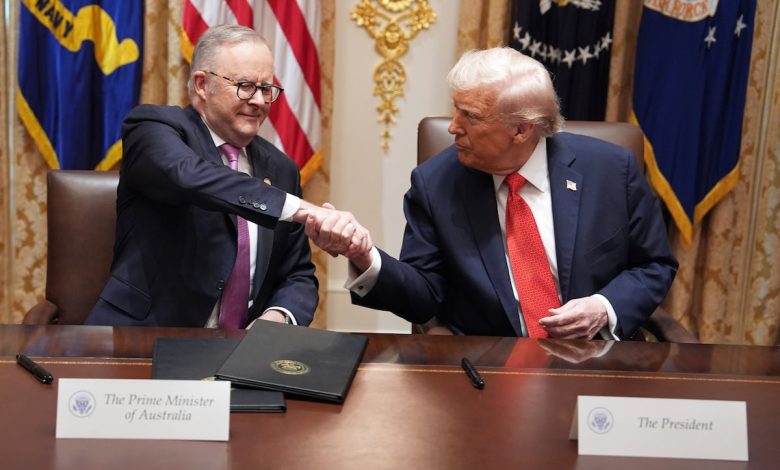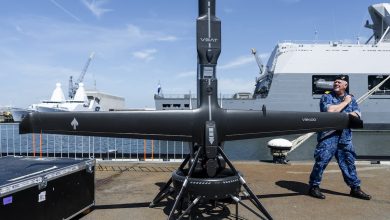Trump backs US nuclear submarine deal for Australia

U.S. President Donald Trump guaranteed the country’s commitment to providing nuclear submarines to Australia as part of the AUKUS agreement on sharing nuclear-powered submarine technology with Australia and the United Kingdom, ending uncertainty following a Pentagon review.
Trump joined Australia’s Prime Minister Anthony Albanese in a joint press conference in Washington, D.C., on Monday and affirmed that the submarines pledged to Australia as part of the deal are currently under construction.
“We have it all set with Anthony [Albanese],” Trump told reporters. “We’ve worked on this long and hard and we’re starting that process right now and I think it’s really moving along very rapidly, very well.”
In response to questions, Trump confirmed the process of providing Australia with the submarines is being expedited.
“We are doing that,” he said.
The president’s remarks end months of speculation that pledges to provide Australia with submarines as part of the AUKUS agreement would be scuttled following a review announced unexpectedly by the Pentagon in June.
“The Department is reviewing AUKUS as part of ensuring that this initiative of the previous Administration is aligned with the President’s America First agenda,” a Pentagon spokesperson wrote in a statement at the time, in a move that reportedly rattled Australian allies.
Speaking with journalists Monday, Trump gave his assurances that submarine production for Australia is moving forward. He said the agreement would not see any more major reviews.
“There shouldn’t be any more clarifications, because we’re just going now full steam ahead building,” Trump said.
The agreement will see the U.S. deliver three Virginia-class fast-attack submarines to Australia in the 2030s, followed by a new class of five nuclear-attack submarines in the 2040s.
The promised submarines represent a technological jump for the Royal Australian Navy, which currently relies on Collins-class diesel-electric submarines. Australian sailors have been training with the U.S. Navy Nuclear Propulsion Program to learn how to maintain and operate nuclear-powered vessels.
Doubts have clouded the future of AUKUS in previous months, not only in light of the Pentagon review but also as U.S. lawmakers have lamented the lagging condition of Navy shipbuilding.
Zita Ballinger Fletcher previously served as editor of Military History Quarterly and Vietnam magazines and as the historian of the U.S. Drug Enforcement Administration. She holds an M.A. with distinction in military history.







